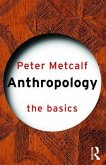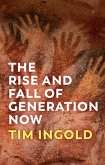Thomas C. Patterson
Karl Marx, Anthropologist
Thomas C. Patterson
Karl Marx, Anthropologist
- Broschiertes Buch
- Merkliste
- Auf die Merkliste
- Bewerten Bewerten
- Teilen
- Produkt teilen
- Produkterinnerung
- Produkterinnerung
After being widely rejected in the late 20th century the work of Karl Marx is now being reassessed by many theorists and activists. Karl Marx, Anthropologist explores how this most influential of modern thinkers is still highly relevant for Anthropology today.
Andere Kunden interessierten sich auch für
![The Big Three in Economics: Adam Smith, Karl Marx, and John Maynard Keynes The Big Three in Economics: Adam Smith, Karl Marx, and John Maynard Keynes]() Mark SkousenThe Big Three in Economics: Adam Smith, Karl Marx, and John Maynard Keynes187,99 €
Mark SkousenThe Big Three in Economics: Adam Smith, Karl Marx, and John Maynard Keynes187,99 €![Karl Marx, Historian of Social Times and Spaces Karl Marx, Historian of Social Times and Spaces Karl Marx, Historian of Social Times and Spaces Karl Marx, Historian of Social Times and Spaces]() George Garca-QuesadaKarl Marx, Historian of Social Times and Spaces Karl Marx, Historian of Social Times and Spaces33,99 €
George Garca-QuesadaKarl Marx, Historian of Social Times and Spaces Karl Marx, Historian of Social Times and Spaces33,99 €![Anthropology Anthropology]() Peter Metcalf (USA University of Virginia)Anthropology19,99 €
Peter Metcalf (USA University of Virginia)Anthropology19,99 €![Companion Encyclopedia of Anthropology Companion Encyclopedia of Anthropology]() Tim Ingold (ed.)Companion Encyclopedia of Anthropology125,99 €
Tim Ingold (ed.)Companion Encyclopedia of Anthropology125,99 €![A History of Classical Chinese Thought A History of Classical Chinese Thought]() Zehou LiA History of Classical Chinese Thought60,99 €
Zehou LiA History of Classical Chinese Thought60,99 €![The Rise and Fall of Generation Now The Rise and Fall of Generation Now]() Tim IngoldThe Rise and Fall of Generation Now55,99 €
Tim IngoldThe Rise and Fall of Generation Now55,99 €![World Prehistory World Prehistory]() Brian M. Fagan (USA University of California)World Prehistory89,99 €
Brian M. Fagan (USA University of California)World Prehistory89,99 €-
-
-
After being widely rejected in the late 20th century the work of Karl Marx is now being reassessed by many theorists and activists. Karl Marx, Anthropologist explores how this most influential of modern thinkers is still highly relevant for Anthropology today.
Hinweis: Dieser Artikel kann nur an eine deutsche Lieferadresse ausgeliefert werden.
Hinweis: Dieser Artikel kann nur an eine deutsche Lieferadresse ausgeliefert werden.
Produktdetails
- Produktdetails
- Verlag: Taylor & Francis Ltd
- Seitenzahl: 238
- Erscheinungstermin: 1. April 2009
- Englisch
- Abmessung: 234mm x 156mm x 13mm
- Gewicht: 380g
- ISBN-13: 9781845205119
- ISBN-10: 1845205111
- Artikelnr.: 25693272
- Herstellerkennzeichnung
- Libri GmbH
- Europaallee 1
- 36244 Bad Hersfeld
- gpsr@libri.de
- Verlag: Taylor & Francis Ltd
- Seitenzahl: 238
- Erscheinungstermin: 1. April 2009
- Englisch
- Abmessung: 234mm x 156mm x 13mm
- Gewicht: 380g
- ISBN-13: 9781845205119
- ISBN-10: 1845205111
- Artikelnr.: 25693272
- Herstellerkennzeichnung
- Libri GmbH
- Europaallee 1
- 36244 Bad Hersfeld
- gpsr@libri.de
Tom Patterson is Distinguished Professor and Chair of Anthropology at the University of California at Riverside. He is author of many publications including Marx's Ghost: Conversations with Archaeologists (2003) and A Social History of Anthropology in the United States (2001).
Preface Chronology Introduction Polemics, Caveats, and Standpoints
Organization of the Book Ch. 1 The Enlightenment and Anthropology Early
Enlightenment Thought The World Historicized The New Anthropology of the
Enlightenment Rousseau's Historical-Dialectical Anthropology The Scottish
Historical Philosophers The Institutionalization of Anthropology Kant's
Pragmatic Anthropology Herder's Historical-Dialectical Anthropology
Göttingen: Beyond "Anthropology for Doctors and Philosophers"Hegel's
Critical-Historical Anthropology Ch.2 Marx's Anthropology What are Human
Beings? The Corporeal Organization of Human Beings "Ensembles of Social
Relations" and Human Beings as Social Individuals History Truth and Praxis
Ch. 3 Human Natural Beings Charles Darwin and the Development of Modern
Evolutionary Theory Darwin's Metaphors and Theory of Evolution by Natural
Selection The Problems of Variation and Inheritance The Modern Synthesis
and Beyond Human Natural Beings: Bodies That Walk, Talk, Make Tools,and
Have Culture Engels's "The Part Played by Labor in the Transition from Ape
to Man" Fossils and Proteins Demography and Population Structure Marx on
the Naturalization of Social Inequality Ch. 4 Anthropology, History, and
Social Formation Marx's Historical-Dialectical Conceptual Framework
Pre-Capitalist Modes of Production Primitive Communism The Asiatic Mode of
Production and the Slavonic Transition The Ancient Mode of Production The
Germanic Mode of Production The Feudal Mode of Production Societies and
Cultures Pre-Capitalist Societies: Limited, Local, and Vital Human History
Is Messy Ch. 5 Capitalism and the Anthropology of the Modern World The
Transition to Capitalism and its Development The Articulation of Modes of
Production Property, Power, and Capitalist States Ch. 6 Anthropology for
the Twenty-First Century Social Relations and the Formation of Social
Individuals Alienation Domination, Exploitation, and Forms of Social
Hierarchy Resistance and Protest Anthropology: "The Study of People in
Crisis by People in Crisis"Notes Bibliography
Organization of the Book Ch. 1 The Enlightenment and Anthropology Early
Enlightenment Thought The World Historicized The New Anthropology of the
Enlightenment Rousseau's Historical-Dialectical Anthropology The Scottish
Historical Philosophers The Institutionalization of Anthropology Kant's
Pragmatic Anthropology Herder's Historical-Dialectical Anthropology
Göttingen: Beyond "Anthropology for Doctors and Philosophers"Hegel's
Critical-Historical Anthropology Ch.2 Marx's Anthropology What are Human
Beings? The Corporeal Organization of Human Beings "Ensembles of Social
Relations" and Human Beings as Social Individuals History Truth and Praxis
Ch. 3 Human Natural Beings Charles Darwin and the Development of Modern
Evolutionary Theory Darwin's Metaphors and Theory of Evolution by Natural
Selection The Problems of Variation and Inheritance The Modern Synthesis
and Beyond Human Natural Beings: Bodies That Walk, Talk, Make Tools,and
Have Culture Engels's "The Part Played by Labor in the Transition from Ape
to Man" Fossils and Proteins Demography and Population Structure Marx on
the Naturalization of Social Inequality Ch. 4 Anthropology, History, and
Social Formation Marx's Historical-Dialectical Conceptual Framework
Pre-Capitalist Modes of Production Primitive Communism The Asiatic Mode of
Production and the Slavonic Transition The Ancient Mode of Production The
Germanic Mode of Production The Feudal Mode of Production Societies and
Cultures Pre-Capitalist Societies: Limited, Local, and Vital Human History
Is Messy Ch. 5 Capitalism and the Anthropology of the Modern World The
Transition to Capitalism and its Development The Articulation of Modes of
Production Property, Power, and Capitalist States Ch. 6 Anthropology for
the Twenty-First Century Social Relations and the Formation of Social
Individuals Alienation Domination, Exploitation, and Forms of Social
Hierarchy Resistance and Protest Anthropology: "The Study of People in
Crisis by People in Crisis"Notes Bibliography
Preface Chronology Introduction Polemics, Caveats, and Standpoints
Organization of the Book Ch. 1 The Enlightenment and Anthropology Early
Enlightenment Thought The World Historicized The New Anthropology of the
Enlightenment Rousseau's Historical-Dialectical Anthropology The Scottish
Historical Philosophers The Institutionalization of Anthropology Kant's
Pragmatic Anthropology Herder's Historical-Dialectical Anthropology
Göttingen: Beyond "Anthropology for Doctors and Philosophers"Hegel's
Critical-Historical Anthropology Ch.2 Marx's Anthropology What are Human
Beings? The Corporeal Organization of Human Beings "Ensembles of Social
Relations" and Human Beings as Social Individuals History Truth and Praxis
Ch. 3 Human Natural Beings Charles Darwin and the Development of Modern
Evolutionary Theory Darwin's Metaphors and Theory of Evolution by Natural
Selection The Problems of Variation and Inheritance The Modern Synthesis
and Beyond Human Natural Beings: Bodies That Walk, Talk, Make Tools,and
Have Culture Engels's "The Part Played by Labor in the Transition from Ape
to Man" Fossils and Proteins Demography and Population Structure Marx on
the Naturalization of Social Inequality Ch. 4 Anthropology, History, and
Social Formation Marx's Historical-Dialectical Conceptual Framework
Pre-Capitalist Modes of Production Primitive Communism The Asiatic Mode of
Production and the Slavonic Transition The Ancient Mode of Production The
Germanic Mode of Production The Feudal Mode of Production Societies and
Cultures Pre-Capitalist Societies: Limited, Local, and Vital Human History
Is Messy Ch. 5 Capitalism and the Anthropology of the Modern World The
Transition to Capitalism and its Development The Articulation of Modes of
Production Property, Power, and Capitalist States Ch. 6 Anthropology for
the Twenty-First Century Social Relations and the Formation of Social
Individuals Alienation Domination, Exploitation, and Forms of Social
Hierarchy Resistance and Protest Anthropology: "The Study of People in
Crisis by People in Crisis"Notes Bibliography
Organization of the Book Ch. 1 The Enlightenment and Anthropology Early
Enlightenment Thought The World Historicized The New Anthropology of the
Enlightenment Rousseau's Historical-Dialectical Anthropology The Scottish
Historical Philosophers The Institutionalization of Anthropology Kant's
Pragmatic Anthropology Herder's Historical-Dialectical Anthropology
Göttingen: Beyond "Anthropology for Doctors and Philosophers"Hegel's
Critical-Historical Anthropology Ch.2 Marx's Anthropology What are Human
Beings? The Corporeal Organization of Human Beings "Ensembles of Social
Relations" and Human Beings as Social Individuals History Truth and Praxis
Ch. 3 Human Natural Beings Charles Darwin and the Development of Modern
Evolutionary Theory Darwin's Metaphors and Theory of Evolution by Natural
Selection The Problems of Variation and Inheritance The Modern Synthesis
and Beyond Human Natural Beings: Bodies That Walk, Talk, Make Tools,and
Have Culture Engels's "The Part Played by Labor in the Transition from Ape
to Man" Fossils and Proteins Demography and Population Structure Marx on
the Naturalization of Social Inequality Ch. 4 Anthropology, History, and
Social Formation Marx's Historical-Dialectical Conceptual Framework
Pre-Capitalist Modes of Production Primitive Communism The Asiatic Mode of
Production and the Slavonic Transition The Ancient Mode of Production The
Germanic Mode of Production The Feudal Mode of Production Societies and
Cultures Pre-Capitalist Societies: Limited, Local, and Vital Human History
Is Messy Ch. 5 Capitalism and the Anthropology of the Modern World The
Transition to Capitalism and its Development The Articulation of Modes of
Production Property, Power, and Capitalist States Ch. 6 Anthropology for
the Twenty-First Century Social Relations and the Formation of Social
Individuals Alienation Domination, Exploitation, and Forms of Social
Hierarchy Resistance and Protest Anthropology: "The Study of People in
Crisis by People in Crisis"Notes Bibliography









